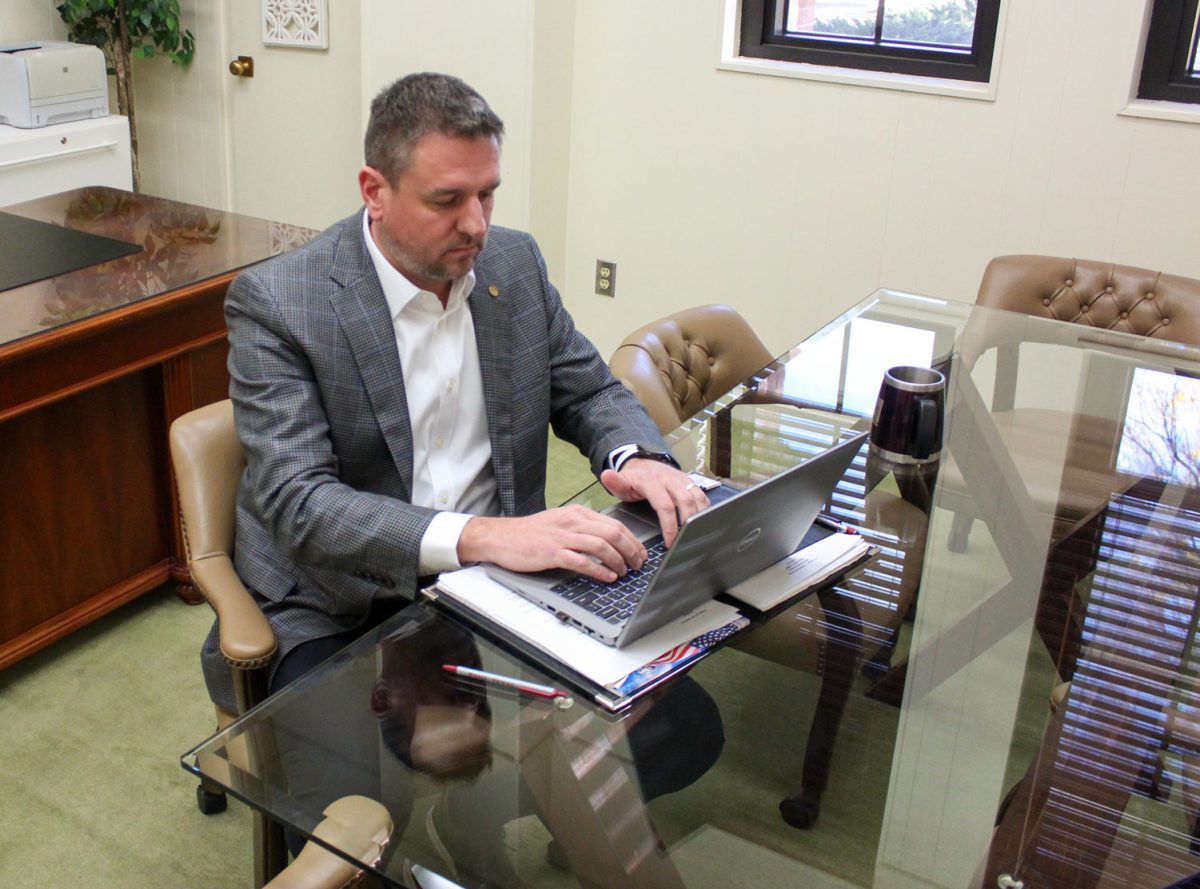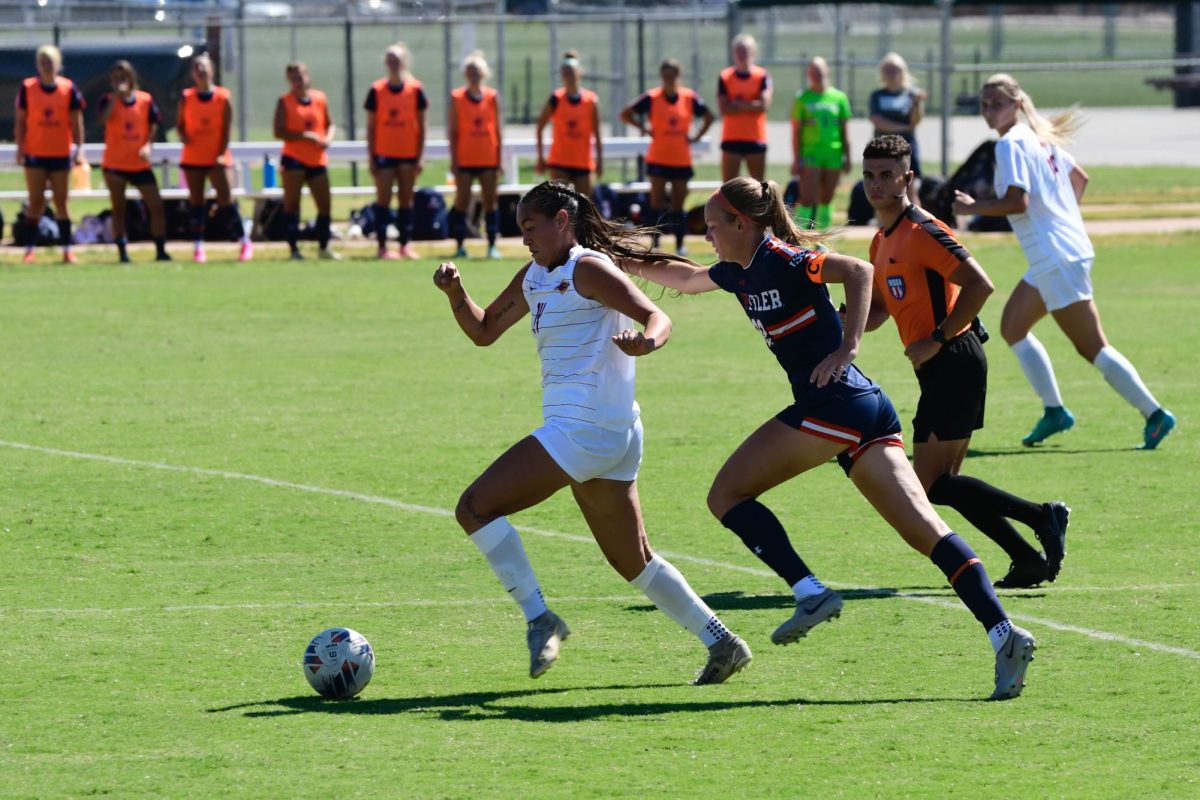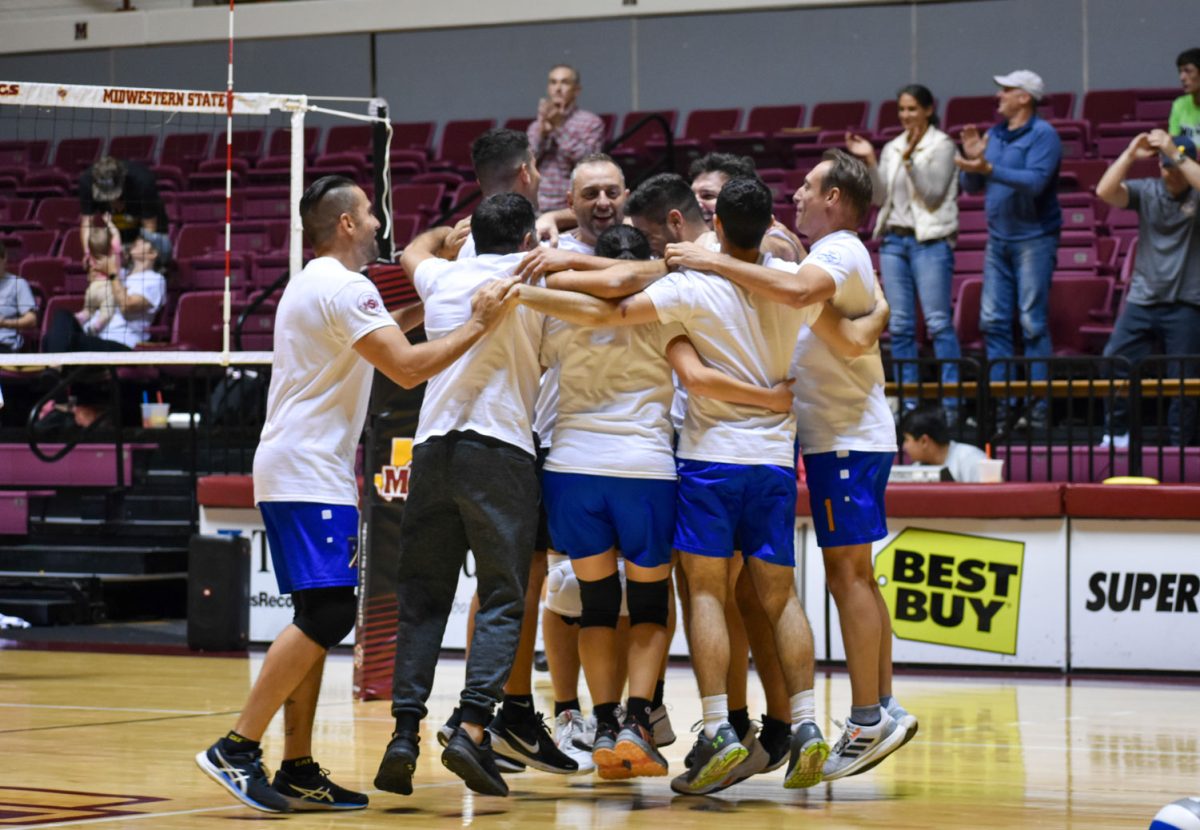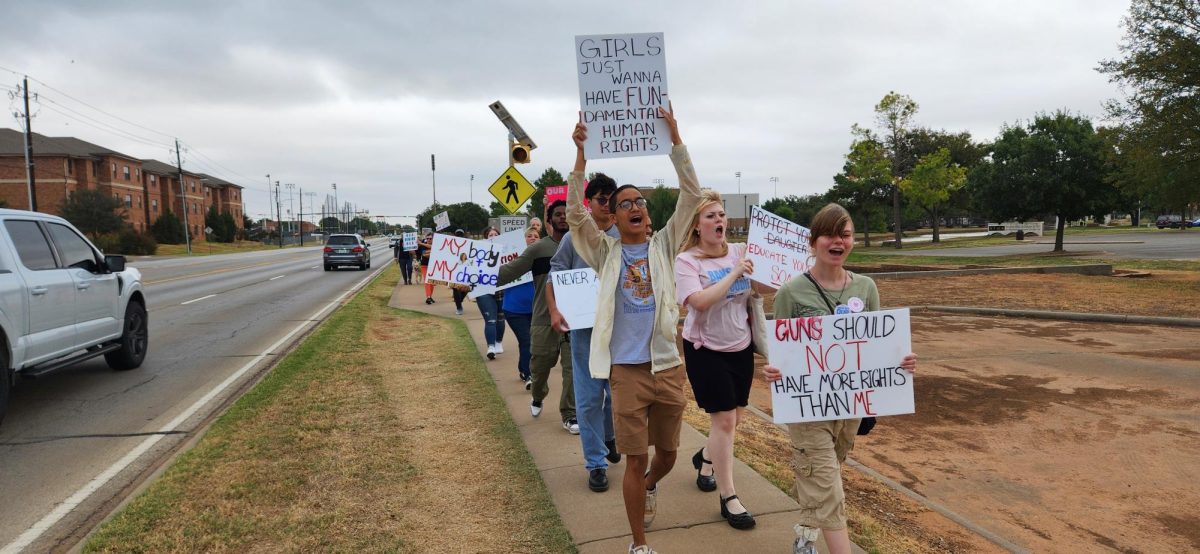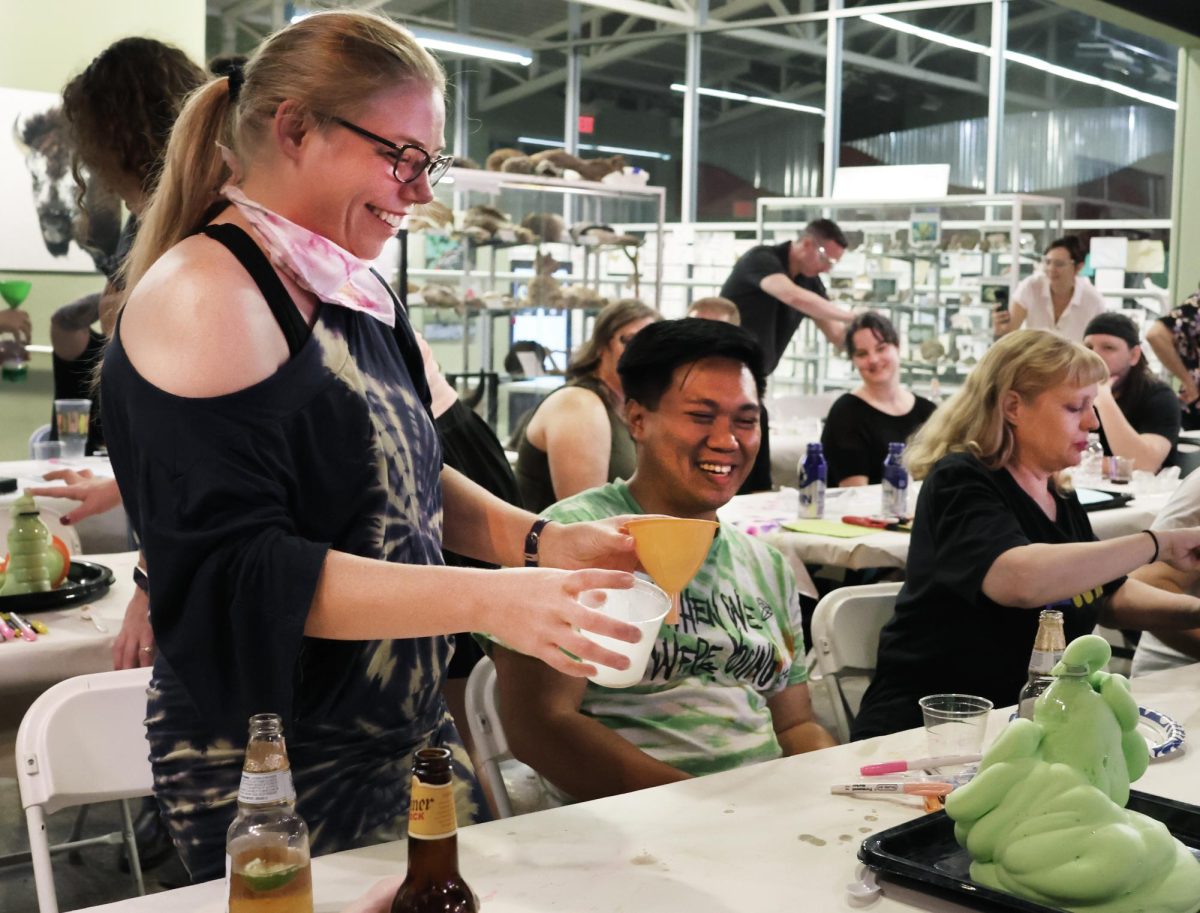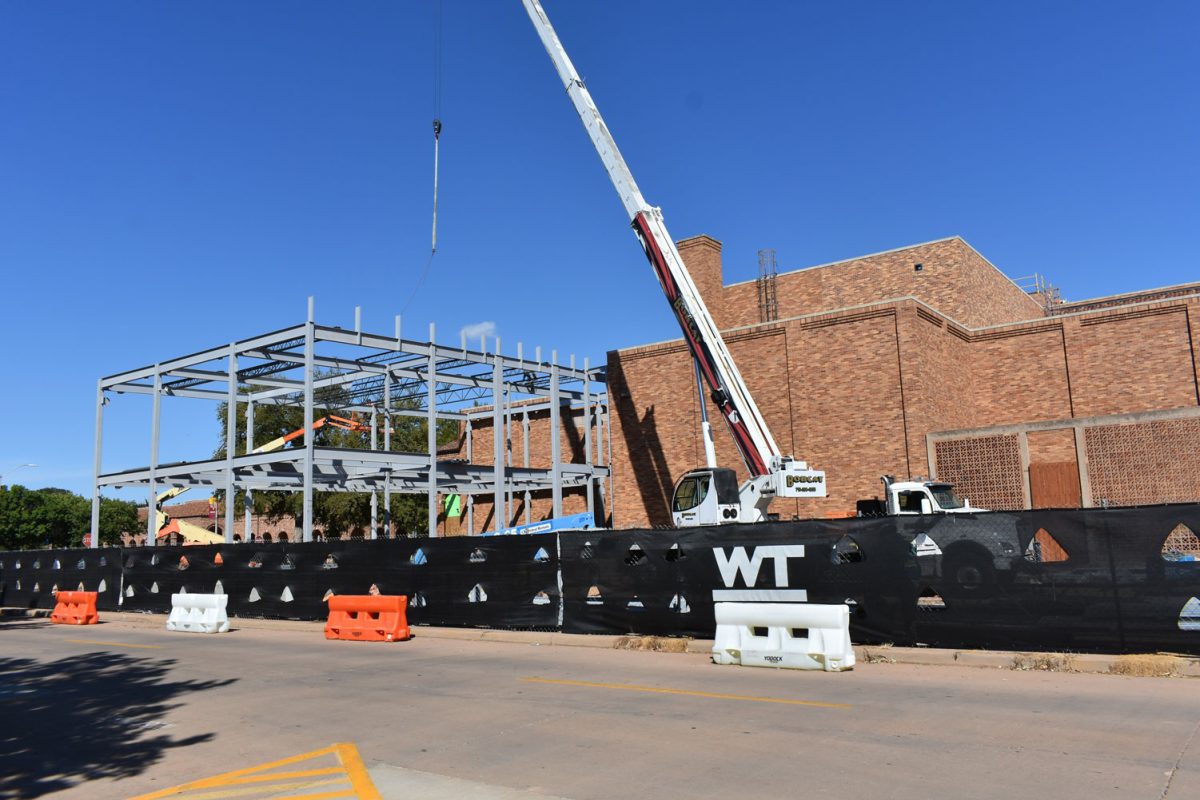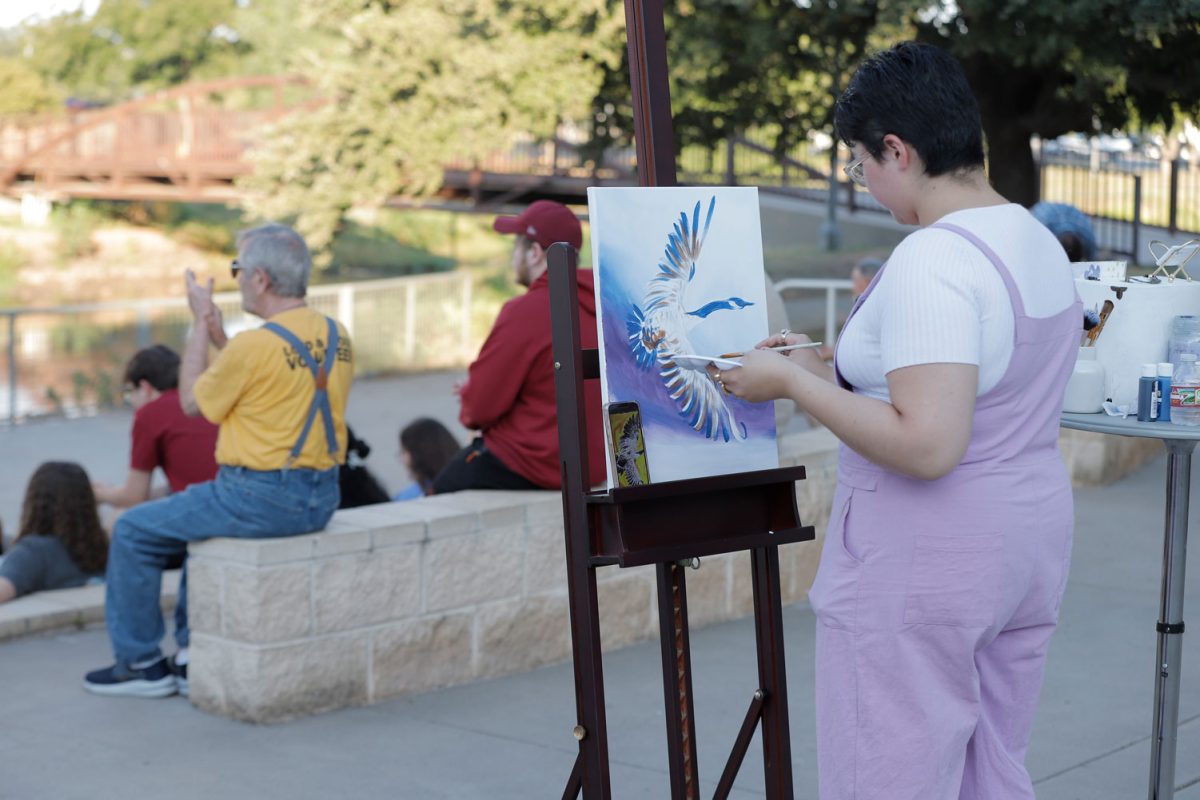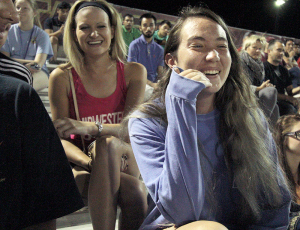
From July of 2014 to March of 2015, time practically stood still for Kylie Austin. After spending days in a hospital bed hooked up to IVs and hours listening to doctors say her dream of playing college soccer might be stripped away, Austin received news on March 24 that gave her hope.
Austin, history freshman and defender for the women’s soccer team, was diagnosed with thyroid cancer right before the beginning of her freshman year. She underwent surgery to remove her thyroid and then shortly after, she survived a near-fatal car wreck that flipped her truck three times. Austin was able to walk away with minimal injuries, still refusing to give up her dream to play soccer.
“My drive came from whatever I needed to do to get back on the field,” Austin said. “I was willing to do whatever it took and more to ensure that I could play again and be back at MSU.”
After her surgery, Austin’s doctors at M.D. Anderson Cancer Center in Houston suggested she begin radioactive iodine treatment, which involved shots and pills. Austin and her parents agreed to go ahead with the treatment because it had the best chance of stopping the cancer.
“Everyone was on the same page: Eliminate the cancer,” Austin said.
But with the special radioactive treatment came a very special diet. She was no longer able to eat the food she was used to, like dairy, wheat, soy and even salt.
“Obviously the special diet I had sucked. Especially because I’m a soccer player and I was used to working out so much and being able to enjoy whatever I wanted to eat,” Austin said.
From the moment Austin was diagnosed, she and her family expected that she would miss a lot of school. Since she was just starting her freshman year of college, her parents were worried about her professors not being understanding of her absences.
Austin said she ended up missing a month-and-a-half of school, which made it difficult to keep up her grades and schoolwork.
With Austin’s treatments becoming more intense and physically draining, her parents were concerned for her and worried about her professors working with her directly on how she could keep up her grades.
Austin said it was important to her parents that she not only stay in the soccer program but also stay involved with her studies while away at college and battling her cancer.
Austin’s mother, Stacy Austin, said she wanted Kylie to attend college and to stay active in the soccer program. She knew Kylie was not the kind of girl to sit around and let this diagnosis get the best of her.
“Kylie decided early on that she wanted to attend college and kill her cancer. After confirming with her doctors, it was an easy decision,” her mother said. “Giving her some sense of normalcy and control of her daily life while we wait for her recovery would benefit her far greater than sitting at home and worrying.”
Kylie was able to pass all of her classes in her first semester with help from study hall—made mandatory for freshman athletes—her friends bringing her notes while she was bedridden, and a dash of leniency from her professors.
Tanner Pearson, environmental science sophomore, said, “The thing about Kylie is that she doesn’t ever give up. Even on her worst days, she will give her everything. She puts up a good fight, tries to keep a positive attitude, and she completely inspires me.”
Austin not only had to endure one week of radioactive iodine treatment, but a few weeks after that she did another round of radioactive treatment. Austin describes the treatments as mentally and physically draining.
She said for nearly a week she would wake up at 5 a.m. to drive to M.D. Anderson from her home in Houston to get her shot and pills. When the nurses treated her, they had to wear protective gloves just to handle the radioactive medicine.
Because Austin had surgery to remove her entire thyroid, this meant she also had to start treatment to help her hyperthyroidism, a condition in which her thyroid becomes overactive.
“I will be on hyperthyroidism medicine for the remainder of my life,” Austin said. “This just comes with the prize of having all of my cancer removed though.”
Unfortunately, determining the hormone dosage was not easy for her doctors.
“The doctors had to guess a dosage of hormones to start me out at. So at first it was too much, and then the second dosage was so much less. It really threw my body out of whack,” Austin said.
Austin felt plenty of the side effects from hyperthyroidism while her doctors tried to decide her correct dosage. Some of these symptoms include: anxiety, nervousness, irritability, difficulty sleeping, and muscle weakness.
Dealing with her recovery from surgery and the injuries she received from her car wreck, meant that Austin spent a lot of time in the training room with Christanie Rodriguez, the assistant head athletic trainer.
Rodriguez said Kylie has a positive attitude and is always up for coming into the training room for rehabilitation appointments.
On March 24 after her last round of radioactive treatment, doctors told Austin the good news.
“When I was given the news that I was cancer free and the radioactive iodine treatment had worked, I was completely in shock,” Austin said.
Austin said every moment of pain, heartbreak, and determination paid off in that one phone call she received. She said cancer had taken over her health, passions, family, school, soccer—her entire life. And now she said she got it all back at once, after waiting for what she said felt like an eternity.
Austin said she could not have gotten through her surgery, recovery and treatments without her family, friends and her teammates. A few of the teammates grew close to Austin during her few months of being at MSU.
Katy Catney, sports management senior and captain of the women’s soccer team, said Kylie’s passion for the game helped her identify with the team. Catney said she admired Kylie for keeping up with the team’s efforts online, even while she was away at treatment.
“Kylie told me once that cancer was something that she was going to have to deal with. She accepted that she had been dealt a bad hand in life. Even though she was dealt a bad hand, she still woke up every day and was ready to play her hand the best she could, rather than just taking the easy way out and folding,” Catney said.
Since receiving the good news, Austin said she already feels a difference in her health.
“I have been drinking fluids like crazy to get this radioactive junk out of my system,” Austin said.
Kylie has started jogging during soccer practices with the team and has been able to juggle the ball and do some passing, but she has not been released yet by her doctors or the athletic trainers to do any contact playing. Austin said her goal is to be back on the field by next fall.
“Kylie is a fighter,” Catney said. “She is a pain in the ass 90 percent of the time, but she fights hard. That’s something no one can take away from her.”









